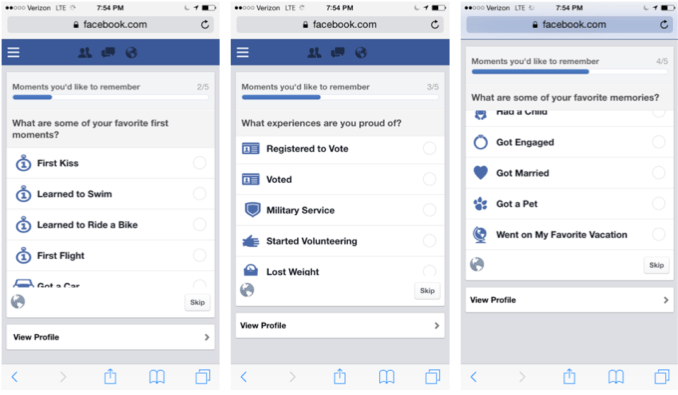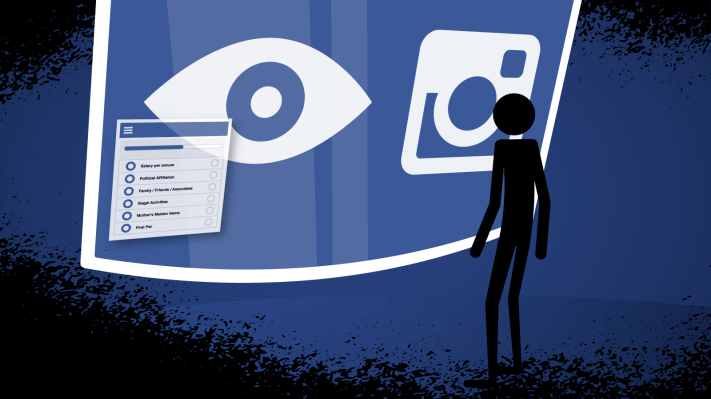Editor’s note: Dan Kaplan helps startups tell their stories. He’s done marketing for Twilio, Asana and Salesforce and blogs about marketing, growth, and storytelling at Threadling.
Maybe it’s naive, but I’d always hoped that Facebook would evolve into the Internet’s humanizing, unifying force — the one that would stretch across geographical, national, religious and racial boundaries to show us that, even when we disagree about the tactics, we all want the same things for ourselves and our children: to be safe, to be at peace, to have food and shelter, respect and opportunity and hope.

Indeed, with the combined social force of Facebook and the immersive power of Oculus Rift, I still think this vision remains possible.
But let’s face some realities:
- For all of the promise it may hold, Facebook is a massive data maw that uses variable reward mechanisms to feed our brains dopamine while collecting copious amounts of our personal information.
- With this all-consuming hunger for data on the things that make us tick, Facebook is creating the biggest online identity database and the most powerful media-targeting engine ever known.

As a marketer who believes that content marketing will become the dominant form of advertising, this is a boon. When you understand your target market and know how to produce content that engages it, there is simply no better way than Facebook to get this content in front of exactly the right people.
But as someone who cares about the future of democracy and human autonomy and wants these things to persist and not collapse into some form of corporatist totalitarianism, my feelings are a bit more mixed.
In the next couple of posts I write, I’m going to explore some potential trajectories for Facebook’s future. While it’s possible that Facebook’s walls won’t hold up against the multi-front assault from social mobile apps, I think it’s more likely than not that Facebook will be around in some form in 10 years. Some of these forms are beneficent. Others, not so much.
Today, let’s take a look at one of the less ideal paths, where Facebook evolves into the multitool for the modern totalitarian. Like most projections into the future, this is just speculative fiction.
Tool No. 1: Surveillance at Scale
In East Germany under communism, the secret police (the Stasi) gathered data by hand, relying on stakeouts and a massive network of civilian informants to build detailed files on its targets, whose ranks included pretty much everyone.
Under the watchful eyes of the Stasi, whose file cabinets stretched for miles, case agents were responsible for keeping tabs on individuals and groups. Though these agents had large and ever-growing dossiers at their disposal, they were essentially confined to what they could capture on paper and keep in their minds.
The 21st century totalitarian has no patience for this antiquated approach. And nor should he: compared to Internet-scale data collection, the Stasi’s methods are slow, inefficient, and prone to lapses in human judgment.
No, the 21st century totalitarian needs a modern way to capture and catalog the activities, psychologies, and political sentiments of the population in real time. Ideally, this would be a place online where people share freely and regularly about themselves.
Tool No. 2: Data Mining
Of course, collecting massive amounts of data is the (relatively) easy part. Once you have access to a large, rich and ever-growing online identity database, you need algorithms that can mine its activities and uncover threats to the status quo.
Along with potential terrorists, these threats include:
- subversives
- whistleblowers
- radicals
Wouldn’t it be nice if you, the 21st century totalitarian, could build a detailed psychological profile of these types and use your massive identity database and a bit of sophisticated machine learning to find others? Sure, you’d surface a substantial number of false positives, but it’s nothing some light investigation and/or interrogation couldn’t suss out.
With such a tool at your disposal, it’d be like having the pre-cogs from Minority Report, but instead of weirdly-psychic humans drugged up and living in a bath, you’d have an All-Seeing Machine.
Tool No. 3: Mass Manipulation
The 20th century totalitarian relied on absolute control of the flow of information. Writing official textbooks, burning subversive materials, censoring the media, and publishing a non-stop flow of propaganda was simply the way of things. But for the 21st century totalitarian, the fragmentation of TV and the free-form frontiers of the Internet complicates this strategy.
Sure, you could just co-opt cable news, but there are so many channels! Radio? That’s so 1933.
No, while these blunt forms of manipulation work for Fox News and Rush Limbaugh, they are too obvious to work on everyone else.
Today’s totalitarian demands a more subtle way to influence cultural and political sentiment. But if you got your hands on an algorithmically filtered newsfeed? One that could control the stories people see every day and influence their emotions across geographic, political and economic lines? You’d be in business.
Where Does That Leave Us?
I don’t know Mark Zuckerberg personally, but I believe he has a vision that involves eliminating artificial barriers between people and building a better world.
While Facebook has made a few boneheaded privacy blunders in the past, I have been willing to give the company the benefit of the doubt. I have trusted that Zuckerberg and his senior staff have benevolent intentions for the power they are amassing.
But then there was the mood-influence study that scandalized us for a couple of weeks this year. Facebook changed the tone of content showing up in people’s feeds to test the impact it could have on their moods. The results, not too surprisingly, suggested that Facebook has the power to manipulate sentiment at scale.
I’d always sort of worried that Facebook, despite the good intentions of the people building it, could eventually evolve into the Totalitarian Multitool. The disclosure of this study brought the whole thing home.
Even though I’m hopeful that the ideals of democracy and human freedom will persevere against the paranoia of our modern age, there’s a strong case to be made that some of these ideals face a risk of death in the not-too-distant future.
Given how easy it is to scare people about the scary-seeming-but-actually-low-risk Ebola, and how dumb we all get when we are afraid, it is not crazy to think that under the wrong circumstances — like one or two more mass-scale terrorist attacks on major cities — modern democracy gives way to something akin to 1984.
If Big Brother were to seize the reins of power, sure, he’d use the cable news the way it’s being used today. But Facebook’s data maw, targeting power and sentiment-manipulation capabilities would be far more insidious.
Whether this is what we become or not comes down to the future we choose to build.
